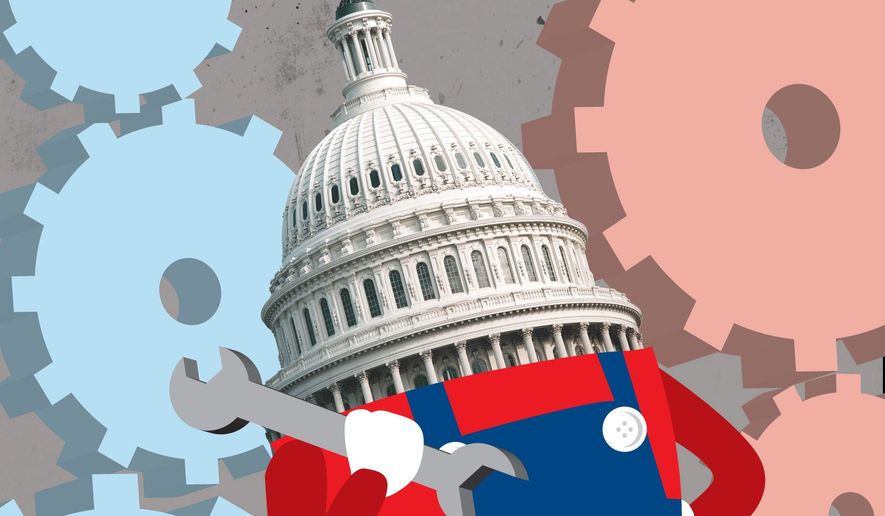OPINION:
A few days ago, in an unintentionally hilarious self-parody, a senior executive at the electric truck maker Rivian complained that the tax credits in Sen. Joe Manchin III’s reconciliation legislation weren’t going to work for the company because none of the pickup trucks the company makes sell for less than $80,000 — which means they don’t qualify for the tax credit in the bill.
While the income and price limits in the Manchin-led spending legislation are pretty generous, they apparently are not generous enough for some. It’s bad enough that Sen. Sheldon Whitehouse, Rhode Island Democrat, suggested that the entire section may need to be rewritten.
The Rivian official and Mr. Whitehouse have a point. Because reconciliation was negotiated by two people — Mr. Manchin, West Virginia Democrat, and Senate Majority Leader Charles E. Schumer of New York — and did not go through regular order, its defects are being discovered essentially on the fly.
The routine avoidance of regular order and process is a cancer on the Congress. Regular order — when legislation works its way through subcommittees and committees before reaching the floor, where the entire House or Senate can consider amendments and ultimately vote — is essential for a number of reasons.
First, regular order makes legislation more durable. The CHIPS legislation, which gave $75 billion to the already very profitable semiconductor industry, may not be this generation’s Missouri Compromise, but its provisions will survive because it went through regular order, was improved by the amendment process, and, as a result, was supported by both Republicans and Democrats.
In comparison, many of the reconciliation provisions will not survive past the next moment when the Republicans control Congress and the presidency. That could come as soon as 29 months from now.
It is understandable that interest groups want to grab as much cash as they can as fast as they can. But the lack of regular order means, in the long run, that tax credits for wind, solar and other types of alternative generation, as well as electric vehicles, will become entirely subject to political vagaries. Good luck with that.
Second, regular order makes legislation better. If Rivian and Mr. Whitehouse had the opportunity to make their case and vote during the process, they would not be reduced to scrambling to fix legislative text that they saw for the first time just before the Senate started voting. The proposal is a substantive dumpster fire (who raises taxes in a recession?) in large part because it did not go through regular order. No one — on either side — had any chance to improve it because there was no process.
Third, regular order helps individual senators and House members better represent their constituencies and retain power and autonomy. When legislative substance and details are worked out by leadership and the vast majority of senators or House members are presented at the last minute with completed — if poorly drafted — legislation, there is no meaningful opportunity for lawmakers to participate and represent their constituents’ interests.
Finally, because regular order allows opponents of a bill the opportunity to be heard and to have their legitimate concerns addressed, it reduces the natural friction between factions.
Sunday’s reconciliation theater in the Senate was merely the latest in a long series of arrogations of power by congressional leadership. This last-minute, everything-in-one bill, deus ex machina approach to legislating is, not surprisingly, most prevalent when the legislative provisions are most controversial. It reduces the quality of legislation, disenfranchises voters, diminishes lawmakers, creates friction and produces ephemeral and transitory policy.
If lawmakers want to retain their ability to represent their constituents, preserve their power, revivify the legislative process and ensure that Congress continues as a functional, co-equal branch of the federal government, they should commit to not voting for any legislation — from any party — that has not gone through regular order. Legislative outcomes would improve dramatically, and the ability of U.S. lawmakers to meaningfully represent their constituents would be enhanced.
It is the only way to arrest Congress’ long, slow slide toward institutional obsolescence.
• Michael McKenna, a columnist for The Washington Times, co-hosts “The Unregulated podcast.” He was most recently a deputy assistant to the president and deputy director of the Office of Legislative Affairs at the White House.




Please read our comment policy before commenting.